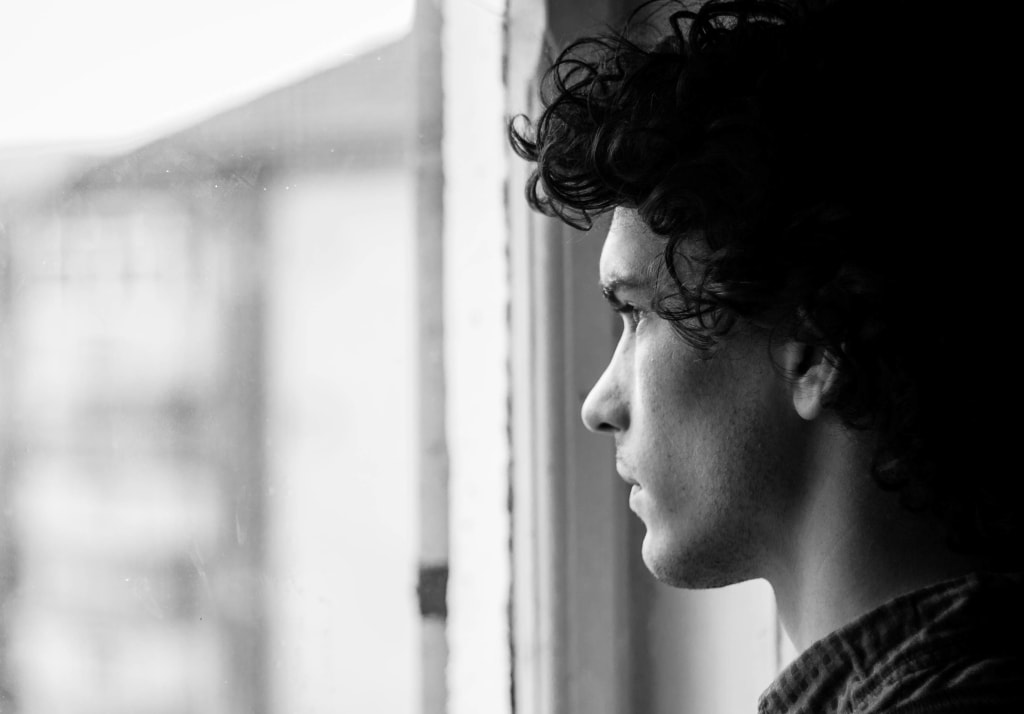
I guess I've always known that I wasn't "normal" from a young age. I always felt things more intensely than other people, and held onto those emotions longer. I had difficulty making and keeping friends. Due to my mixed ancestry, I had a constant identity crisis, never knowing where I fit in. I also had a very tumultuous childhood in which I experienced traumas that still affect me to this day. I always wondered what was wrong with me. Was it something that I could fix, or would I just have to suffer my whole life? It was not until I was 27 that I was diagnosed with Borderline Personality Disorder, the most commonly diagnosed personality disorder. Where I live (the United Kingdom), it's estimated that seven out of every 1000 people have this disorder.
Getting a diagnosis was not easy. Most medical professionals are wary of diagnosing personality disorders in adolescents in children since some of the features, such as impulsivity and moodiness, tend to be common at those stages of development. (I was definitely your typical moody, angsty teenager!) When I started having extended bouts of depression and panic attacks at the age of 16, my mother took me to our GP. After getting my vital signs taken and asking a few questions, she gave me a prescription for an antidepressant and asked me to come back in a couple of months to see how it was working for me. The pills made no difference as far as I could tell, so against her advice, I quit taking them.
When I was 18 I broke up with my high school boyfriend and I thought my world was coming to an end. This was the first time I experienced suicidal ideation, which means I was contemplating and planning suicide. My mother discovered me early one morning wandering the street in my underwear; I still have no idea what I was doing. Was I trying to jump in front of a car? Run away? I saw a different doctor and was given another antidepressant and a short-term prescription for an anti-anxiety medication called Klonopin. While the Klonopin helped with my anxiety, the antidepressant only made me feel like a zombie. My doctor offered to switch me to something else but I refused. I was tired of being a lab rat. I was strong, I'd gotten through a lot on my own and I would handle this on my own as well.
Throughout my twenties I was in a lot of stormy, toxic and even abusive relationships. By the time I was 25 I already had a failed marriage and a broken engagement under my belt. People were initially drawn to me because of my lively, outgoing personality, but they tended to drift away after awhile. They often found that I was clingy, emotional, and dramatic, and when I flaked or cancelled too many times on plans, friends were pretty much done with me. Even when I did find a steady group of friends, I always felt like an outsider. I could be in a room full of people I liked and still feel completely alone.
At 27 I got married again, this time to a man in the military. I also started seeing a wonderful new GP who referred me to a psychiatrist. After describing what had been going on over the last decade, he said, "Matti, I think you have Borderline Personality Disorder." I had read about personality disorders over the years in my quest to figure out what was wrong with me, but I didn't think it was... that. Weren't borderlines manipulative and destructive? Also, wasn't it incredibly hard to treat? I didn't want to be in therapy for the rest of my life. I just wanted a new medicine or a workbook or something that would make everything better. My psychiatrist set me up with a counselor, whom I would see once a week for the forseeable future. He also prescribed another (!) antidepressant and a mood stabilizer.
Working with my counselor, I was able to sift through the traumatic events of my childhood and see how they contributed to the unhealthy behaviours I was displaying in adulthood. I also realised that I was doing a lot of maladaptive things without even noticing, because they were my "normal." It's been four years now and while I have made a lot of progress, I still have a long way to go. I know that stability, not normalcy, is my end goal. I also know that I will never be 100% better. As there has been very little research done on BPD in older populations, I also have no idea what to expect as I age. Will I get better or worse? All I can do is stay positive and work on myself every day, no matter how hard it gets.
About the Creator
Matti dos Santos
American living in the UK. I caught the writing bug at age 8 and haven't stopped writing since! Full-time social work student and part-time retail slave. Lover of Dr. Pepper and doughnuts.






Comments
There are no comments for this story
Be the first to respond and start the conversation.